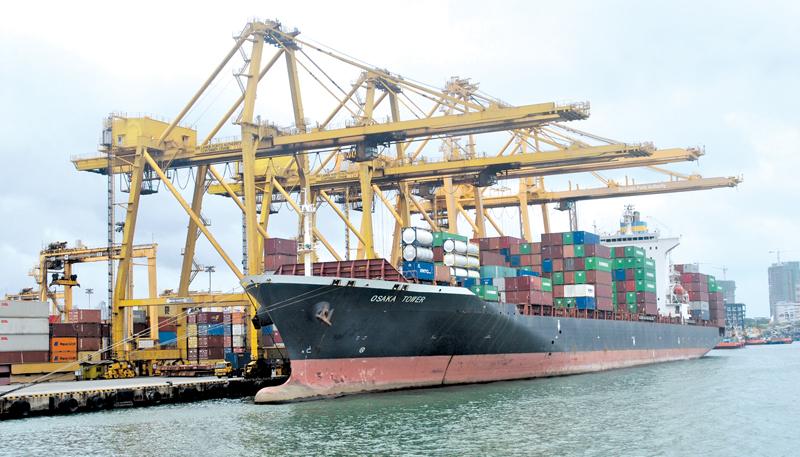
Sri Lanka would have been the maritime hub in Asia had it embraced British and American companies who were keen to invest in Sri Lanka in the 1950s to boost the energy sector in the country, Chairman, Advisory Committee on Logistics, EDB Rohan Masakorala said.
He was speaking at the inauguration of the national Public Private Dialogue on Maritime, Logistics and Transportation Reform held under the EU-Sri Lanka Trade Assistance project implemented by the International Trade Centre in Colombo last week.
“Sri Lanka today is languishing behind many regional economies as it stubbornly stuck to a ‘closed door’ policy after independence whereas countries such as Singapore made leaping progress since it opened doors for the rest of the world to partner in development,” Masakorala said.
Shipping and maritime experts have been reiterating the need to develop the maritime industry in the country if it is to take full advantage of the geographical position of the island in the region.
“We should have been the energy hub in the region. When we said no to foreign companies who were interested to partner local companies in the 1950’s one man in Singapore, Lee Kuan Yew, put his hand up and welcomed foreign companies to Singapore, which has one of the world’s leading energy companies namely ExxonMobil, Singapore, and this is how the transformation in Singapore came about,” Masakorala said.
ExxonMobil has been for more than 120 years in Singapore growing from a trading kerosene post to a multi-billion dollar manufacturing and marketing business today.
“What are we today? Singapore welcomed the world to be partners in 1959 but we shut the door in 1961 following nationalisation policies that drove away foreign companies. Instead, what we have today is only the rickety Sapugaskanda refinery which is in the same position or in a worse condition today. As a result, we have lost an opportunity to be a hub for LPG, LNG, refinery, bunkering services and openings for tourism and financial services,” Masakorala added.
He said there are around thousands of ships moving around Singapore which is a leader in bunkering services. Sri Lanka has to liberalise its ports and shipping industries and be competitive to develop a vibrant maritime industry.
State Minister of Finance Eran Wickramaratne called on all industry stakeholders in the ports and shipping industries to have an open mind and move towards more liberalisation of the shipping industry if it is to gain from the country’s geographical position for ports and shipping business in the region.
“Sri Lanka has a strategic advantage due to its position in the Indian Ocean. However, we have captured only a small amount of the transshipment containers while the full potential of the maritime and logistics sector remains unfulfilled. The Government’s vision for the country is to achieve the maritime status by 2020,” the Minister said.
He said the Trincomalee, Colombo and Hambantota ports are being developed under the port infrastructure development initiative of the Government. The progress of the maritime industry in Singapore has leaped frogged whereas we have not because we lack foreign participation in the industry. More competition will bring in enormous benefits on cost and competitive pricing.
“Liberalisation’ of the shipping industry proposed in the 2018 Budget was welcomed by many. However, some still think liberalising the shipping industry will not benefit the country. The launch of the SAGT and CICT terminals are good examples of liberalisation of the industry. If we do not engage global partners we will lose the advantage of our strategic location. Liberalisation of the shipping industry is a key stepping stone to build a maritime industry,” the Minister said.
Professor of Economics, University of Colombo Sirimal Abeyratne said there have not been major, bold reforms for the past 27 years but instead the war is being blamed for the slow progress in the country. . Maintaining around five percent economic growth during the war is remarkable. However, what is not remarkable are the distortions in the open economy.
“‘We opened the economy in 1977 and we say that we were the first to open the economy in the region. I don’t think everything was right in that package. It lacked some essential components. There have been many taxes which still exist. These prohibitive tariffs have messed up the open economy,” Prof. Abeyratne said.
He said, if we think of having a protective regime we must depend on domestic resources. Now, the war is over and it’s time to move on with the right policies. There have been selective interventions to safeguard certain industries. Such interventions as seen in certain countries are alright but it has been the overall policy regime in Sri Lanka. Policy distortions have scuttled growth in exports and today we are faced with the challenges of a weak currency and the need to enforce the rule of law.
